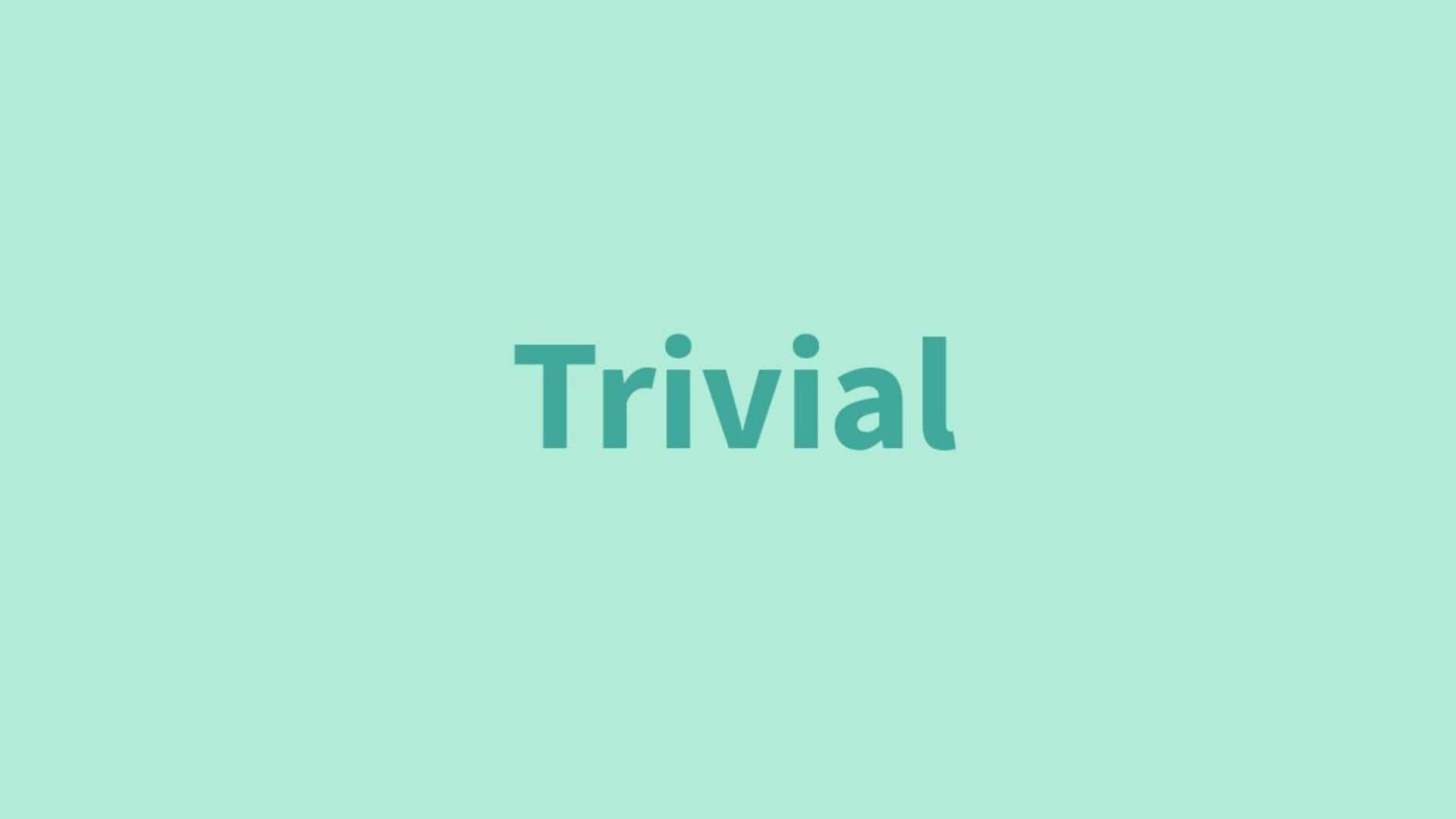
Word of the Day: Trivial
What's the story
"Trivial" is a noun that describes something unimportant or insignificant. It refers to minor details or matters that don't require much attention. For example, a small spelling mistake in a casual text is "trivial"—it doesn't change the meaning. However, what seems "trivial" to one person might hold importance for another.
Origins
Origin of the word
The word "trivial" comes from the Latin word trivialis, meaning "commonplace" or "belonging to the crossroads." In medieval times, the trivium referred to basic studies in grammar, rhetoric, and logic—considered simple compared to advanced subjects. Over time, "trivial" evolved to mean something ordinary, unimportant, or not worth much thought.
Synonyms
Synonyms for 'trivial'
Several words can be used in place of "trivial," depending on the context. Common synonyms include insignificant, minor, petty, unimportant, and negligible. These words all suggest a lack of importance or impact. For instance, a petty argument over a misplaced item or an insignificant detail in a report both highlight "trivial" matters that don't require much concern.
Usage
Sentence usage
Here's how to use "trivial" in a sentence: "She was frustrated that their friendship ended over such a 'trivial' misunderstanding." "The manager chose to focus on 'trivial' details rather than addressing the real problem." "He was known for dismissing people's concerns as 'trivial,' even when they were important to others."
Precision
Why use the word
Using "trivial" helps add clarity when discussing minor matters that don't need much attention. It's useful in debates, casual conversations, and professional settings to differentiate between important and less significant topics. Whether you're dismissing small concerns or describing something common, 'trivial" is a precise and effective word to have in your vocabulary.